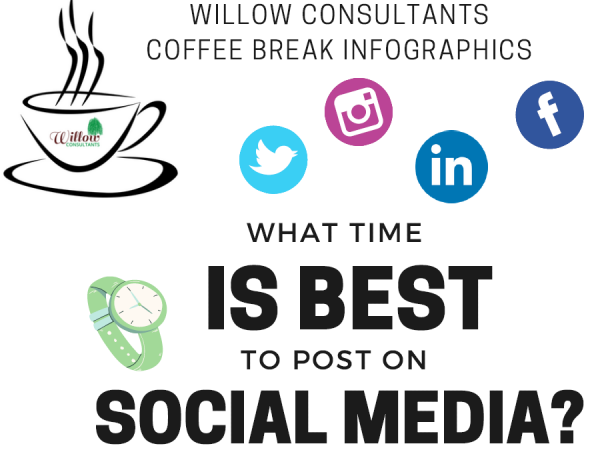
Millennials: The subject of countless marketing conference papers over recent years.
For non-digital natives – Baby Boomers and Gen X executives – in the early part of the new millennium, the maturing of this new demographic felt qualitatively different. What would this cohort of consumers be like who had never known a non-internet world – and how could older executives in charge get them to buy stuff?
They were growing up fast, and companies needed to understand them, through vox pops and consumer safaris. Stereotypes rapidly emerged too: sensitive snowflakes, feckless avocado toast munchers, too busy nomadically hopping from one gig and one continent to the next to tie themselves down with responsibilities like mortgages and reproduction. They were saving the world and expecting the world as thanks.
But while market researchers have always tried to understand consumers in terms of broad personas and categories, we should be wary of generalizing about such a diverse and complex demographic.
Instead, we need to do a better job of understanding them and addressing them in an appropriate way. A plethora of lifestyles, backgrounds, and expectations, spanning a formative period of age, cannot meaningfully be put in the same box, and communicated with as an amorphous whole.
Millennials in 2021 – who are they?
Broadly defined as those born between 1977 and 2000, Millennials today encompass a spread of age from early 20s well into their 40s and a diversity of life stages.
Some are indeed still in the perpetual student ‘kidult’ paradigm and the influence of COVID disruption of their higher education and other life plans is yet to play itself out. Others are older and, while their aspirations and earning power may be forever marked by the last financial crisis, they have moved on and built careers and lives of their own regardless.
They have fewer material assets than previous generations. But more and more of them are homeowners and they are more likely to have acquired invisible wealth in cryptocurrency, day trading, and NFTs.
Their manifest lack of materialism is easily confused with a rejection of wealth and possessions generally, but this may conceal more complex truths about what is perceived to be truly valuable, and they prefer experiences over material things.
And many of them are raising a new generation themselves now.
They’re doing this later in life than their own parents and, of course, they’re doing it differently. Rejecting their own over-supervised ‘helicopter’ upbringing, they’re embracing flexibility – in non-traditional family structures, made-up names, and working from home. From paternity leave to home education, the eldest millennials are redefining this life stage too and raising their little Generation Alphas into a brave new world that none of us can predict with certainty.
Millennials at work
As well as parenting, Millennials work too – many of them in traditional jobs beyond the start-up gig-worker stereotypes.
In fact, this age group comprises more than half of the workforce – a lot more in some industries – and not just in tech. For example, Ernst & Young and Accenture have already reported that Millennials make up over two-thirds of their entire employee base. In these enterprises, they are naturally moving into senior roles as they mature, and transforming leadership and decision-making. Flattening hierarchies, shortening cycles, they’re introducing new collaborative and servant-leadership styles, getting things done in new ways.
Some of the stereotypes are indeed playing out into these new seniorities and shifting the shape of business, as millennials are now embedded at every level in many organizations. Why approach the manager of my manager’s manager via formal channels and gatekeepers, when it’s so easy to ping them a direct message?
Agile business cycles and cross-functional projects are helping to cut across legacy silos and traditional organizational structures. While they may be less likely to pick the phone and call someone than any other cohort, they won’t hesitate to contact them electronically (and by the way, we’re all making fewer voice calls now anyway, socially and for business). Don’t bother cold calling a millennial, at home or at work!
In the recent remote work revolution, the digital-native ease with collaboration technology was a huge advantage.
Not only were millennial-led businesses more likely to be cloud-enabled and work-anywhere resilient in the first place, but their familiarity with mobile-first text-based communication also made a vital difference. Their ancestors might pride themselves on their tough upbringings in harder times, but in technological terms, it was often the younger executives who made business continuity happen at all during the COVID crisis.
As we come out of the pandemic era and return to offices in a flexible and hybrid way, we’ll see digital native trends like bring-your-own-device and mobile-first working remain significant but it’s important to remember the impact of recent events. None of this is the exclusive territory of Millennials and Gen Z anymore: a new wave of adaptation has occurred. Technology marketing needs to speak to broad user needs.
Another common Millennial employee stereotype is that they crave endless praise and rapid career progression. But careers are simply different now. As Sheryl Sandberg said, ‘it’s a jungle gym, not a ladder’. They will never know the security of a job for life and it’s not short-term thinking to have a continual eye out for the next opportunity. Nor is it disloyal for them to look for that next step outside of what their present employer has to offer.
If they’re asking for feedback, remember they are a data-driven generation so this isn’t necessarily about ego fragility. Instead, they have different expectations, for response times and how information is visualized and used to generate insight on a continual basis. What’s the point in waiting for an annual performance review when the evidence is in? Screw-ups are better identified and put right immediately, and success better marked and celebrated in real-time.
This plays out in their brand interactions too, with ‘cancel culture’ swift to punish any perceived hypocrisy or misbehavior, but they are capable of sincere forgiveness too, respecting public apology and humility.
Making marketing meaningful
So does it make sense to market differently to millennials?
Maybe it’s just a case of recognizing that consumers and their values have changed. We’re not all Millennials, but we’re all influenced by global events, trends, and technologies, and we all have access to the same tools and information.
For example, Millennials are frequently characterized as the most socially conscious generation since their hippy boomer grandparents, and they value brands that are unafraid to align themselves with meaningful positions and causes. But this does not mean Gen X are callous capitalists unmoved by social cause and we all appreciate marketing messages that speak to us as individuals.
This affects our buying behavior as both consumers and business buyers, and we are all generally less brand loyal overall. But this reflects the Millennial cohort coming of age in an environment of greater choice and ease of comparing and switching, rather than any collective flakiness emerging. For their parents to change to another bank 20 years ago was a complex and time-consuming move, not undertaken without very good reason – but when it’s as simple as downloading an app, then why not?
Beyond broad demographics
Furthermore, we live in an age of micro personalization and segmentation. Everyone expects marketing messages to address their needs individually and directly, and older generations no more appreciate generic ‘OK, Boomer!’ communications than do their children and grandchildren. It still makes sense to approach those remaining tech-excluded consumers in unique ways but it’s no longer meaningful to distinguish digital natives from those digital immigrants. Not when those immigrants are immersively born-again into a world that is relentlessly online-first.
Instead, we expect brands to strike a balance between their own consistency and meaning, and being able to segment us and market to us uniquely.
You don’t have to have been born after the 80s to understand that you are being tracked and profiled and retargeted at all times, and we expect them to do a good job of it. When done badly – endless ads for the thing you just purchased – it’s annoying and frustrating. When it works and feels convenient we’ll soft-opt-in, despite our conscience and values: OK sure Amazon, just bring me the refill when your algorithm says I’ll need it.
We all compare our experience of brands across categories too now, and few but the eldest and most technologically excluded consumers expect to form more meaningful relationships with human representatives than with brands as a whole. Of course, we want to be personally account managed as a large B2B account holder, but we know that rep is keeping our vital metrics in a shared CRM. We know our relationship is really with the enterprise, not the rep.
So attempting to market to Millennials as a whole is a flawed strategy from the start in 2020, and it makes far more sense to micro-segment along far more niche behaviors.
In both business and consumer marketing, we all expect our values to be appealed to, our previous activities acknowledged, and the value of our behavioral data respected and rewarded. Millennials are no different in this respect to their parents or their children, and savvy marketers of every generation would do well to remember this.
About the Author:
As a market research veteran and founder of NYC-based B2B market research consultancy firm, Adience, Chris Wells has worked with dozens of companies over the years.
Links:
https://assets.kpmg/content/dam/kpmg/xx/pdf/2021/02/pulse-of-fintech-h2-2020.pdf
https://www.marketdataforecast.com/market-reports/ai-in-fintech-market
https://www.ft.com/content/3fe905e7-8b9b-4782-bf2d-fc4f45496915




